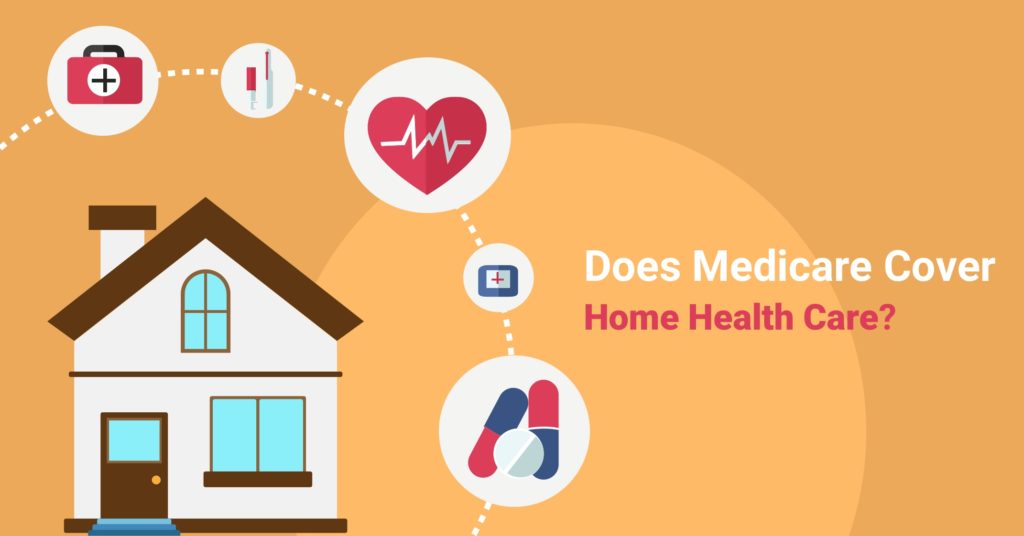Introduction to Home Care Services and Medicare

As we age, it’s natural to require assistance with daily activities and healthcare needs. Home care services offer a valuable solution for individuals who wish to maintain their independence and receive the necessary support in the comfort of their own homes.
Medicare, the federal health insurance program primarily for people aged 65 and older, provides coverage for certain home care services. Understanding the ins and outs of Medicare coverage for home care services is essential for individuals seeking financial assistance. In this article, we will explore the eligibility requirements, covered services, application process, and alternative options such as Medicaid for those in need of home care services.
Understanding Medicare Coverage for Home Care Services
Medicare Part A and Part B, also known as Original Medicare, provide coverage for a range of healthcare services, including home care services. However, it’s important to note that Medicare coverage for home care services is limited and has specific requirements. Medicare does not cover 24-hour home care or custodial care, which is non-medical assistance with activities of daily living such as bathing, dressing, and meal preparation. Instead,
Medicare covers medically necessary skilled nursing care and therapy services provided by licensed professionals. These services must be ordered by a doctor and include intermittent skilled nursing care, physical therapy, speech-language pathology services, and occupational therapy.
Eligibility Requirements for Medicare Home Care Services
To be eligible for financial assistance for home care through Medicare, you must meet certain criteria. Firstly, you must be enrolled in Medicare Part A and/or Part B. Additionally, you must have a doctor’s order stating that you require skilled nursing care or therapy services. Moreover, the home health agency providing the services must be Medicare-certified.
It’s important to note that Medicare coverage for home care services is generally short-term and is meant to aid in recovery from an illness, injury, or surgery. Long-term care needs or ongoing assistance with daily activities are not covered by Medicare.
What Services are Covered Under Medicare?
Medicare coverage for home care services encompasses a range of skilled nursing care and therapy services. These services are aimed at helping individuals regain their independence and improve their overall health. Covered services may include intermittent skilled nursing care, wound care, intravenous therapy, physical therapy, occupational therapy, and speech-language pathology services. It’s crucial to consult with your doctor and home health agency to determine which services are medically necessary and covered by Medicare in your specific situation.
How to Apply for Medicare Home Care Services
Applying for Medicare home care services involves a straightforward process.
- Firstly, you should consult with your doctor to determine if you require skilled nursing care or therapy services. Your doctor will then provide a written order for these services.
- Next, you will need to select a Medicare-certified home health agency that offers the services you require. The chosen agency will work with your doctor to develop a care plan tailored to your needs.
- Finally, the agency will submit the necessary paperwork to Medicare for approval.
It’s important to note that Medicare requires periodic reassessments to ensure ongoing eligibility for home care services.
Medicaid as an Alternative Option for Financial Assistance

While Medicare provides coverage for certain home care services, it may not be sufficient for individuals with more extensive long-term care needs. Medicaid, a joint federal and state program, offers an alternative option for financial assistance. Unlike Medicare, Medicaid covers custodial care, which includes assistance with activities of daily living. Eligibility for
Medicaid varies by state and is based on income and asset limits. It’s important to explore Medicaid as an option if you require ongoing assistance with daily activities that Medicare does not cover.
Differences Between Medicare and Medicaid for Home Care Services
Understanding the differences between Medicare and Medicaid is crucial when considering financial assistance for home care.
Medicare is a federal program primarily for individuals aged 65 and older, while Medicaid is a joint federal-state program that covers individuals with low income and limited assets. Medicare provides coverage for medically necessary skilled nursing care and therapy services, while Medicaid covers custodial care and a broader range of long-term care services. Additionally, Medicaid has different eligibility requirements and income limits compared to Medicare.
It’s important to assess your specific needs and consult with a professional to determine which program or combination of programs is most suitable for your situation.
Additional Financial Assistance Programs for Home Care Services
In addition to Medicare and Medicaid, there are other financial assistance programs available to individuals in need of caregiving services at home. These programs may vary by state and often have specific eligibility criteria. Some examples include the Program of All-Inclusive Care for the Elderly (PACE),
Veterans Administration (VA) benefits, and long-term care insurance policies. Researching and exploring these programs can provide additional avenues for financial assistance and help ensure that you receive the care you need.
Tips for Navigating the Medicare and Medicaid System
Navigating the Medicare and Medicaid system can be complex and overwhelming. Here are some tips to help you through the process:
- Educate yourself: Familiarize yourself with the basics of Medicare and Medicaid, including eligibility requirements, covered services, and any limitations or exclusions.
- Seek professional guidance: Consult with a knowledgeable professional, such as a Medicare or Medicaid counselor, who can provide personalized advice based on your specific situation.
- Keep thorough records: Maintain organized records of medical documentation, doctor’s orders, and communication with healthcare providers and agencies.
- Ask questions: Don’t hesitate to ask questions and seek clarification when you’re unsure about any aspect of your coverage or the application process.
- Stay informed: Stay up-to-date with changes in Medicare and Medicaid policies and regulations that may impact your coverage or eligibility.
Conclusion
Home care services provide valuable support for individuals who wish to age in place and maintain their independence. Understanding the coverage provided by Medicare, as well as alternative options such as Medicaid, is crucial for those seeking financial assistance.
By navigating the Medicare and Medicaid system with the help of professionals and staying informed about available programs, individuals can ensure they receive the necessary care tailored to their needs.
At Attentive Care Service Agency, we offer comprehensive non-medical home care services that go above and beyond Medicare coverage. Discover quality home care services tailored to your needs and experience the benefits of personalized care and support.







